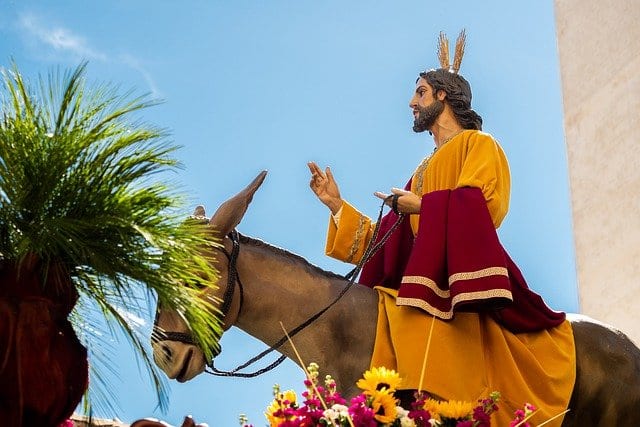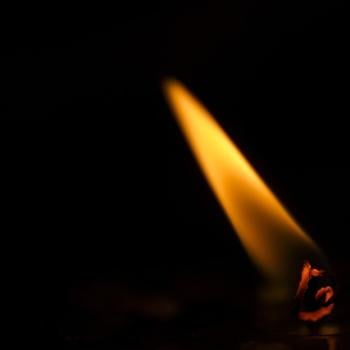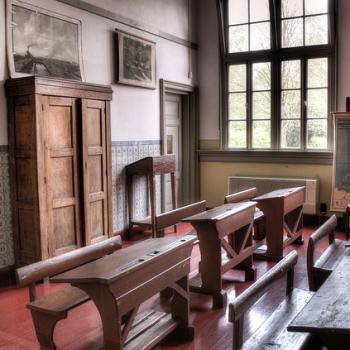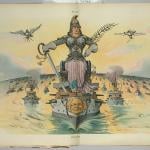
One liturgical year ago yesterday, I stood in a parking lot in my sweatpants receiving absolution, and that was my last sacrament for months and months. We didn’t dare go to Mass again as a family until February.
It’s been a difficult year.
Most years are difficult, to be honest, but this one so much more so. Watching the absolute selfishness of so many for such a long time is exhausting. So many times in the past year, I’ve looked at the people who claim to profess what I also profess and seen something so alien, so cruel… in short, so demonic. And not just in the past year; I’ve been complaining about the coldness and cruelty of my fellow Catholics for the longest time.
It’s the same thing I ran into in the Charismatic Renewal and at Franciscan University so many times, and in Regnum Christi, trying to take refuge in the Byzantine Catholic Church and everywhere else I’ve been. Christ is so undeniably real. I have felt Him beside me, suffering with me, every time I’m hurt. But those who proclaim Christ the loudest are the ones who behave the least like Him. They make Him seem like a lie. Again and again I am so dragged down that I fell like I am becoming an atheist, again and again Christ is manifest to me and I believe in Him, and again and again I return to the font. And then I’m hurt and driven away again. And what I’ve gone through is nothing compared to what so many have gone through. I got off easy in so many ways. But I’m not very strong or courageous, so I hurt.
I was thinking of that yesterday in Mass. I am still getting used to driving myself to Mass, so of course we arrived late. We missed the beginning sequence with the reading about the Triumphal Entry entirely. There were no seats left in the socially distant congregation, but it wasn’t quite crowded enough to open up the basement with the closed circuit TV, so we grabbed a few palms and went and sat in the little room in the back by the bathroom.
The soloist was chanting “My God, my God, why have you abandoned me?”
The room by the bathroom has one bench, perfect for social distancing; it is where they store the first aid kit, the candles and the extra hymnals. It also has an icon of Our Lady of Perpetual Help, and a cast of the head Mary from Michelangelo’s Pieta. You can’t see the dead Christ on her lap, just the grieving mother. Christ is invisible and all you see is grief.
The wall behind the bench has a collection of crucifixes– at least thirty of them, in a jumbled display. There are flat painted crucifixes and cast metal crucifixes, plastic and wood, Western crosses and Eastern three-bar crosses, crucifixes so small they look like they broke off the end of a Rosary and one almost big enough to put behind the altar. Some are in color and some are not. Some are whole, some are chipped, some are missing arms. A few portray the risen Christ but most portray Him in agony.
We read the Gospel, the Passion of Christ. This is the first year Rosie followed along and read aloud from the booklet. The same congregation that had sung “Blessed is He Who comes in the name of the Lord” at the beginning of Mass cried “crucify him!” and “We have no king but Caesar!” And what’s more, in doing so, they consider themselves to be giving service to that same God.
The Mass went on, with a homily I think was good though I didn’t really listen.
I felt the overwhelm I have been struggling with for a year– that year a microcosm of a lifetime of overwhelm.
Somewhere in the mystery of Passion Sunday is the mystery of Christianity. Somewhere in the mystery of Christianity is where I am.
The very same people who say “Blessed is He Who comes in the Name of the Lord” on Sunday murder the Lord for blasphemy by sunset Friday, again and again and again, and they call themselves righteous by doing it. And if you imitate them in what they do, I think you will become a creature of Hell. But if you follow their tormented victim, into Jerusalem in triumph and out of Jerusalem in shame and onto the cross and into the tomb and out again in triumph, you will be saved.
Through the rest of Mass I kept getting distracted, turning my back on the actual sanctuary to look up at that wall of broken crosses.
I never claimed to be a theologian, but this is the wager I keep coming back to again and again and again:
If God is not Love, I’m better than he is, because at least I want to be love. If God is the god of Steubenville and the Charismatic Renewal, all wrath and anger and cliquishness, cheap parlor tricks and tormenting people for fun, if he metes out demonic possessions as punishments, if he’s going to destroy me and destroy others for my sake because of things I can’t control, if he really hates unfortunate people as much as they think he does, if He approves of the way they endanger and persecute the helpless, then I am better than he is. If I’m better than he is, I will gladly go to hell defying him because love is better than all of that. To be a demon would be the correct ethical choice, in a world where that tyrant is God. That God is too small for us to to be bothered with him. We are greater than he.
If, on the other hand, God is Love– I’m not love. Love is better than I am. When I allow myself to move in love, I’m the best I could be, and when I love imperfectly I’m imperfect, and when I’m completely unloving I’m terrible. If I could always move in love, I would be a perfect person all the time. Love is above me, constantly offering me the opportunity to be drawn up into Love. Love is within me, suffering when I suffer. Love is all around, begging to be discovered. Love is active in us when we love. Love is a Great God, a God worth honoring. Love is patient, love is kind. It does not envy, it does not boast, it is not proud. It is not rude, it is not self-seeking, it is not easily angered, it keeps no record of wrongs. Love does not delight in evil but rejoices with the truth. It always protects, always trusts, always hopes, always perseveres. Love never fails. Love is greater than us.
The smaller of of these deities is an idol, and if you follow it you will crucify people and call it righteous. You will do this without realizing what you’re doing, caught up in the passion of a moment. You will do it to the same people you lauded and loved a short time ago and not see the irony. The other worshippers of the idol will encourage you along the way. They will tell you you’re being brave and reverent and counter-cultural and that the people who beg you to stop are persecuting you for you piety.
The greater of these deities is love, and if you give yourself over to love you will follow Love to the cross and be saved. The smaller demands sacrifice, and all you have to do is suppress your conscience and offer whatever sacrifice is demanded. The greater invites us into love, and love is difficult. Love requires us to constantly examine ourselves and repent, choosing to love more and more deeply.
If Christianity is a religion of the small god, then Christianity is nothing more than an itemized list of rules to follow, and a spanking whenever we fail. The sacrifice of Christ was a matter of the Son jumping in front of us to absorb some of our spanking so that we wouldn’t be utterly destroyed. That’s obscene and wrong, and I defy it with all of my being.
If Christianity is a religion of the Great God, then Christianity offers us a path to become love, and love enough to heal us every time we stumble. The sacrifice of Christ was Christ coming down to suffer with an in us and draw our own lives up into the eternal life of the Holy Trinity.
If Christianity is a religion of the small god, then Christianity is false, dangerous, and abusive– and indeed, we’ve seen that danger and abuse throughout history whenever Christians follow the small god.
If Christianity is a religion of the Great God, then we might be transformed, and become saints.
If the small god is God, then the only thing it’s ethical to do is to become a heretic. The supreme honor would be to be thrown out of the holy city and crucified as a blasphemer.
And if the Great God is God, then even if they throw you out of the holy city and crucify you as a blasphemer, you will rise again.
I kept thinking about this the whole rest of Mass– as the same voices who had cried “we have no king but Caesar” chanted “Holy Holy Holy Lord, God of Hosts, blessed is He who comes in the Name of the Lord” once again.
I renounce the small god, and all his pomps and works, and all his empty promises. I believe in the Great God with all my heart, soul, strength and mind.
I want to boast that I will follow the Great God wherever He goes, but someone much more illustrious than I once made that boast, and by morning he had denied the Great God three times. So I simply asked for the grace not to leave the Great God.
I prayed all the way up to Holy Communion. I was the last one in line, and there was a dreadful pause after I came up, because I had to ask for the low-gluten Host for my allergy. I had to wait, just standing there, while the priest turned around and went to get the low-gluten Host from its separate pyx. Maybe he wouldn’t turn around again and I’d be left standing at the front of the church with nothing. Perhaps I’d be embarrassed in front of the whole congregation and have to walk back to my seat with nothing. But then he came back.
He held up the Host. “The Body of Christ.”
I made that awkward throne with my left hand a throne for the right. “Amen.”
And I received the Great God, Love Himself, the One Who is so impossibly vast that He is beyond all pride and so became tiny for my sake.
And just for a moment, everything was all right.
Image via Pixabay
Mary Pezzulo is the author of Meditations on the Way of the Cross and Stumbling into Grace: How We Meet God in Tiny Works of Mercy. Steel Magnificat operates almost entirely on tips. To tip the author, visit our donate page.













